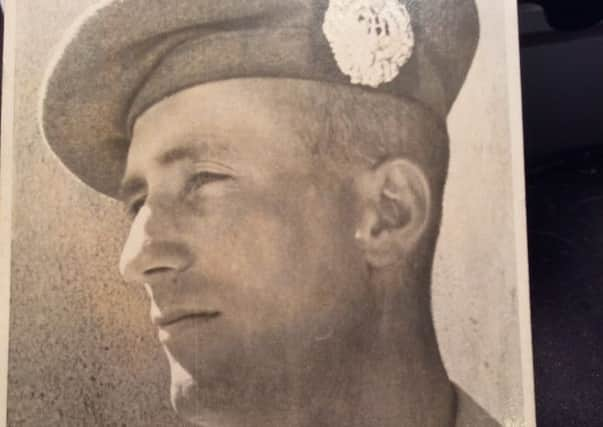Obituary: Sergeant Major Tommy Collett MM, soldier


Regimental Sergeant Major Tommy Collett saw distinguished service in the Korean War with the 1st Battalion The Argyll and Sutherland Highlanders. That conflict has often been described by historians as “the forgotten war with too many acts of bravery by courageous men forgotten too”. Those words reflect Collett’s own heroic contribution. His courage and leadership throughout the fiendish conflict were exemplary.
In August 1950 the battalion came under heavy enemy fire as they crossed the Nakdong River. Their objective was to capture Point 282, a strategically important hilltop from where the North Koreans were firing continually.
Advertisement
Hide AdAdvertisement
Hide AdHowever, the battalion advanced and got to the summit only to find there was another hill that was well defended. The Argylls rapidly dug in to defend their position. That was not easy as the ground was like concrete and extremely hard to dig into.
The Argylls regrouped and started to return fire – expecting relief from some nearby American troops. Inexplicably, they were ordered back to base and the Argylls found themselves in a most vulnerable position. Worse, their casualties were mounting and the conditions were becoming hazardous in the extreme.
The order came from Allied headquarters that the position had to be held to the last man and the last round.
Collett maintained a strict control of resources and men. The able-bodied had to act as stretcher bearers and that meant they were away from the front line for an hour.
Collett timed all the stretcher parties with a stop watch.
He warned them all as they left to carry the injured over the heavy terrain: “No stopping for a fag at the bottom of the hill! Got it?”
The situation worsened further when Collett’s company was napalm bombed by US planes. The enquiry into the tragedy suggested that there was some confusion over the signalling arrangements.
The result on the troops of the napalm attack was horrendous. Collett had to deal with many injured soldiers with first degree burns. The Argylls medical officer, Douglas Haldane, has written: “The Jocks who were alive were very badly burned. Napalm burns the skin. We were left to pick up the pieces.”
Collett regrouped his men and continued the fight. An infantryman reported to him that his weapon was out of action and jammed. Collett handed him his rifle and continued the battle as best he could.
Advertisement
Hide AdAdvertisement
Hide AdCollett courageously rallied his men and regained some of the lost territory. He organised a controlled withdrawal ensuring all the men were accounted for. Uncaring of his own safety, Collett carried an injured colleague to safety.
As he was being carried, the injured man said to his Regimental Sergeant Major: “I never thought I would have my arms around your neck.” Back came the reply: “It will cost you a pint, one day.”
Years later the rescued man had great pleasure in fulfilling the agreement.
Collett was among the last to leave the position. His bravery and lack of concern for his own safety were recognised by the award of the Military Medal. In the Argylls official history it is chronicled that the “friendly fire” was a tragic happening. “Such mistakes as that of 23rd September 1950 can occur under the stress and hazards of war.”
In April 1951 the Argylls were relieved and returned to Hong Kong with their reputation for discipline, coolness and valour much enhanced.
Thomas James Richard Collett was educated locally in south London. In 1935 he joined the army and played a prominent part in the evacuation of the British Expeditionary Force from Dunkirk.
Collett was then transferred to the Argyll and Sutherland Highlanders, serving in Palestine and Hong Kong before embarking for Korea.
Before leaving Hong Kong for Korea the regiment received a “gracious message” from their Colonel-in-Chief, Princess Elizabeth. Collett saw service at both Edinburgh and Stirling Castles and then returned to more active service in what was then British Guiana and Berlin.
Advertisement
Hide AdAdvertisement
Hide AdHe spent two years at Bury St Edmunds and his final appointment was with the Officer Training Corps attached to Glasgow University.
He retired from the army in 1962 with the rank of RSM. His career had been one of selfless dedication allied to a keen sense of duty.
His devotion to the Argylls was absolute and he remained proud of his association with the regiment.
In his retirement he ran a pub, for 23 years, in Bury St Edmunds and was often to be found relaxing on the golf course or the bowling green.
He married, in 1945, Eva Iley. She predeceased him and he is survived by their son.